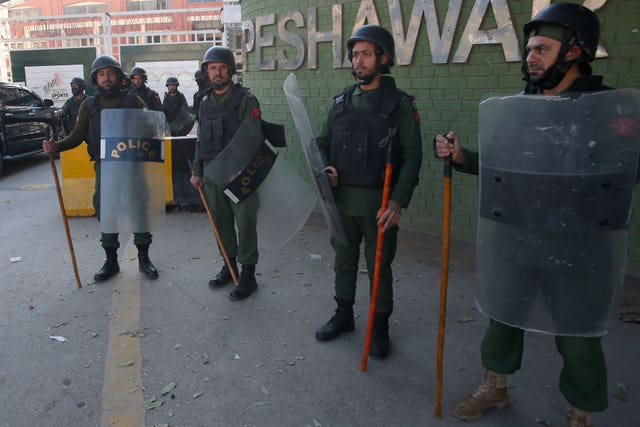
The results of Pakistan’s elections are trickling in after an hours-long delay on Friday, a day after the vote that was marred by sporadic violence, a mobile phone service shutdown and the sidelining of former Prime Minister Imran Khan and his party.
The Election Commission of Pakistan announced about 60 results for the 266 seats of the National Assembly or lower house of the parliament by noon, showing the party of the country’s three-time Prime Minister Nawaz Sharif had an edge over others.
The remaining results were to be announced by the evening, officials said.
Earlier, local media reported victories of dozens of independents backed by Khan’s Pakistan Tehreek-e-Insaf party (PTI) after the imprisoned Khan was disqualified from contesting the vote because of criminal convictions he contends were politically motivated.

PTI candidates ran as independents after the Supreme Court and Election Commission said they could not use the party symbol — a cricket bat. In Pakistan, parties use symbols to help illiterate voters find them on the ballots.
PTI could not hold rallies or open campaign offices, and its online events were blocked, steps it contended were unfair.
The chief election commissioner had previously said the results would be communicated to the oversight body by the early hours of Friday and released to the public after that. But it started happening only on midday local time on Friday.
The Interior Ministry attributed the delay to a “lack of connectivity” resulting from security precautions.
Many Pakistani news channels reported that PTI-backed independents were giving the other big parties, led by Mr Sharif and political dynasty scion Bilawal Bhutto-Zardari, a run for their money by striding ahead in dozens of constituencies.
There are 266 seats up for grabs in the National Assembly, with a further 70 reserved for women and minorities. If no party wins an outright majority, the one with the biggest share of the seats can form a coalition government.

The Election Commission also started announcing the results of the four provincial assemblies in the country. The commission was posting election results on its website more than 15 hours after polls closed.
Mr Sharif struck a confident and defiant note on polling day, brushing off suggestions his Pakistan Muslim League party might not win an outright majority in the parliament. But the mood outside his headquarters was different by nightfall, with sparse crowds and no festivities.
He returned to the country last October after four years of self-imposed exile abroad to avoid serving prison sentences. Within weeks of his return, his convictions were overturned, leaving him free to seek a fourth term in office.


Comments: Our rules
We want our comments to be a lively and valuable part of our community - a place where readers can debate and engage with the most important local issues. The ability to comment on our stories is a privilege, not a right, however, and that privilege may be withdrawn if it is abused or misused.
Please report any comments that break our rules.
Read the rules here